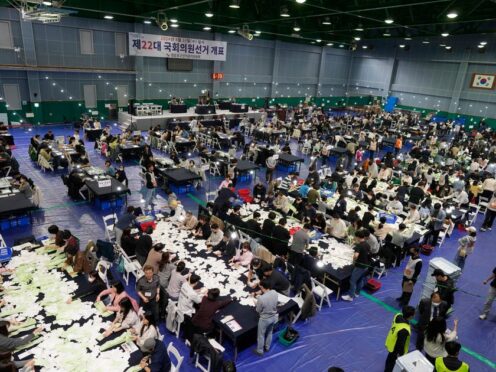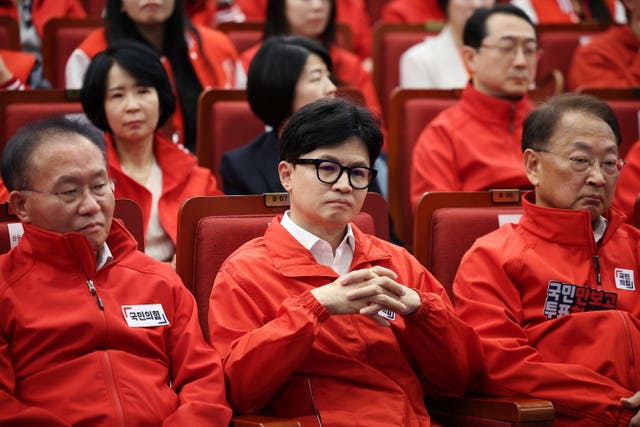
South Korea’s prime minister and senior presidential officials offered to resign on Thursday, media reports said, after their conservative ruling party suffered a crushing defeat in parliamentary elections.
The results of Wednesday’s election posed a huge political blow to President Yoon Suk Yeol, setting back his domestic agenda and leaving him facing an intensifying political offensive by his liberal opponents during his remaining three years in office.
South Korean media, including Yonhap news agency, reported that Prime Minister Han Duck-soo and Mr Yoon’s top advisers submitted their resignations.
Mr Yoon’s office did not immediately officially confirm the reports.

In a separate news conference, ruling People Power Party leader Han Dong-hoon said he would also step down to take responsibility for the election defeat.
Mr Yoon said he would “humbly uphold” the public sentiments reflected in the election outcome and focus on improving people’s economic situations and reforming state affairs, according to his office.
In a separate news conference, ruling People Power Party leader Han Dong-hoon said he would step down as well to take responsibility for the election defeat.
With most of the votes counted, the main opposition Democratic Party and its satellite party appear to have won a combined 175 seats in the 300-member National Assembly.
According to South Korean media tallies, another small liberal opposition party was expected to win 12 seats under a proportional representation system.
Mr Yoon’s ruling People Power Party and its satellite party were projected to have obtained 109 seats.
The final official results were expected later on Thursday.
But the outcome means the liberal opposition forces would extend their control of the parliament, though they will likely fail to garner the super majority of 200 seats that gives them legislative powers to overturn vetoes and even impeach the president.
Wednesday’s election was widely seen as a midterm confidence vote on Mr Yoon, a former top prosecutor who took office in 2022 for a single five-year term.
He has pushed hard to boost cooperation with the US and Japan as a way to address a mix of tough security and economic challenges.
But Mr Yoon has been grappling with low approval ratings at home and a liberal opposition-controlled parliament that has limited his major policy platforms.

Enjoy the convenience of having The Sunday Post delivered as a digital ePaper straight to your smartphone, tablet or computer.
Subscribe for only £5.49 a month and enjoy all the benefits of the printed paper as a digital replica.
Subscribe